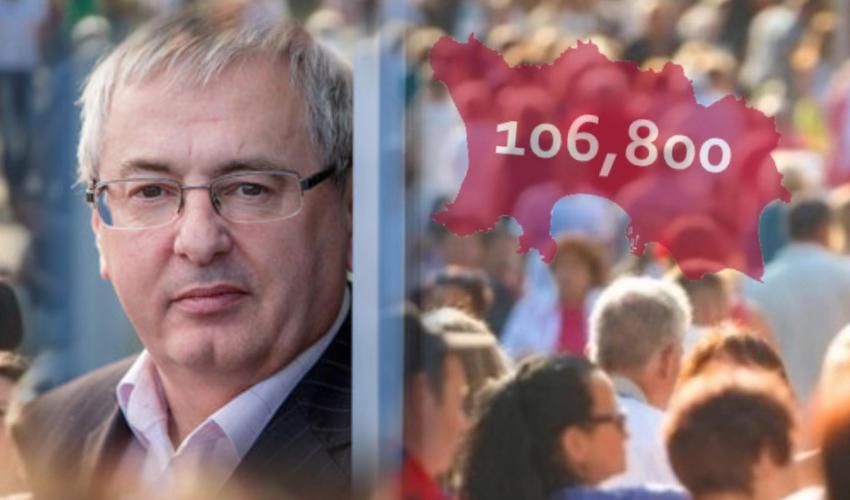

With a growing population and limited resources, who should be allowed to come and work in Jersey has been perhaps THE most sensitive subject, year after year, in Jersey.
In the absence of a proper policy, officials begin to use phrases which come from the economists, like 'high-value' to describe someone who makes a bigger contribution to our GVA. Which is great if you work in finance, but no so helpful to tourism, retail and hospitality.
Express columnist and business guru, Kevin Keen, today calls for the definition 'high-value' to be put on the boat in the morning...
"Being a creature of habit I am a regular at one particular cafe; the staff there are great, making each customer feel like a long lost friend. One particular staff member who I will call John was missing one day, his colleagues explained that he had a new job. A few weeks later John was back at the cafe and when I asked what happened he told me he was now working at a large bank, but was helping out at the café due to their severe staff shortages. I was not surprised to see John progressing his career; he is clearly a hard worker.
According to the latest statistics the average gross value added (GVA) per full time equivalent employee in financial services is £143,000 and in hospitality £38,000. So did John suddenly bring over £100,000 more value to Jersey when he changed sectors? As I say he is a great guy but I very much doubt it. The incremental economic contribution of one new employee is rarely equal to the mean average of all employees in an economic sector.

Pictured: getting good staff for cafes and restaurants is a major challenge for local businesses.
John is not just a one off, there will have been thousands of Johns and Janes who came to the island for a job in hospitality and have ended up working in financial services. The salary and benefits are good; there are plenty of progression opportunities and a diverse choice of firms to work for. The only problem for Jersey comes when hospitality (or retail) is not allowed to replace the staff it has lost to the big guys.
Financial services is without doubt our most important industry, it employs the largest number of people, produces the highest GVA and pays the most tax. Furthermore the spending power of the constituent businesses and employees largely powers the other sectors. Financial services is not just about high powered, highly paid bankers, lawyers and accountants though, to succeed it needs people at all levels and with a wide range of skills & experience. In addition financial services depends on the support the wider economy gives, the coder, the baker, the electricity-maker. They also need the public services, cleaners, builders, hotels, restaurants and retailers; the list goes on and on.
In short, to be successful each sector of our economy depends on the others. Although per sector GVA statistics are interesting for economists, the measure is highly flawed (as much for what it does not include as what it does) and in my view it can also be divisive when used by our policy makers in an attempt to put a positive or negative money value on each of us. I am hoping that in 2020 we will see a much more thoughtful and inclusive approach by our leaders and genuine recognition of the contribution each working person brings to make Jersey the special place it is."

Pictured: Jersey's current population is at least 106,800.
Gross value added (GVA) is the total profits and total wages of a sector added together, except for the public sector where it is just the total wages.
The views expressed in this column are those of the author, not Bailiwick Express.
Comments
Comments on this story express the views of the commentator only, not Bailiwick Publishing. We are unable to guarantee the accuracy of any of those comments.